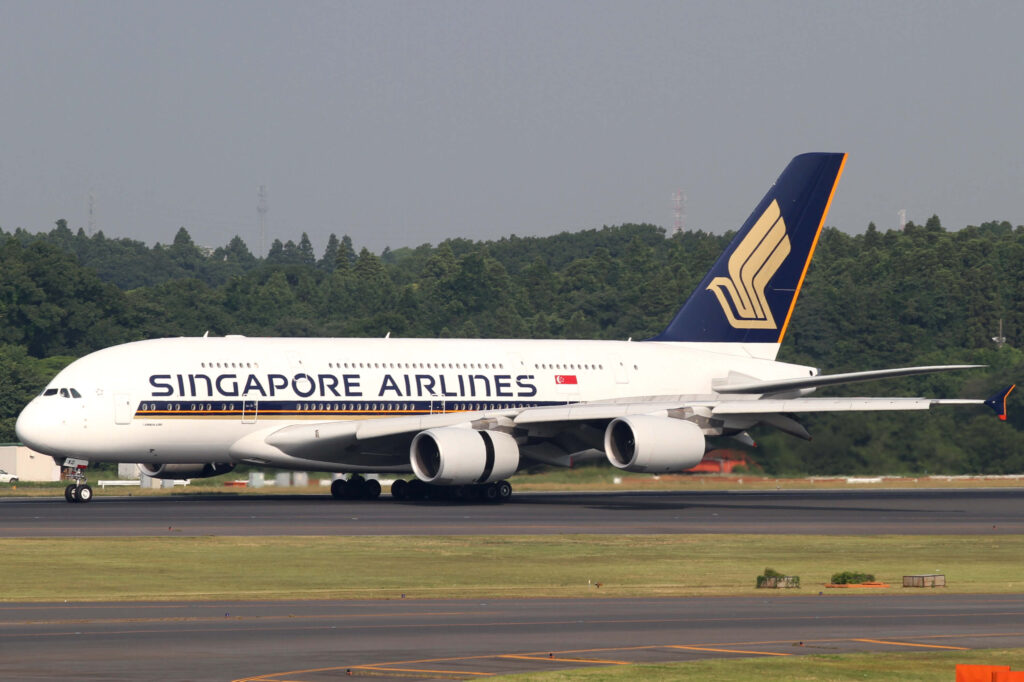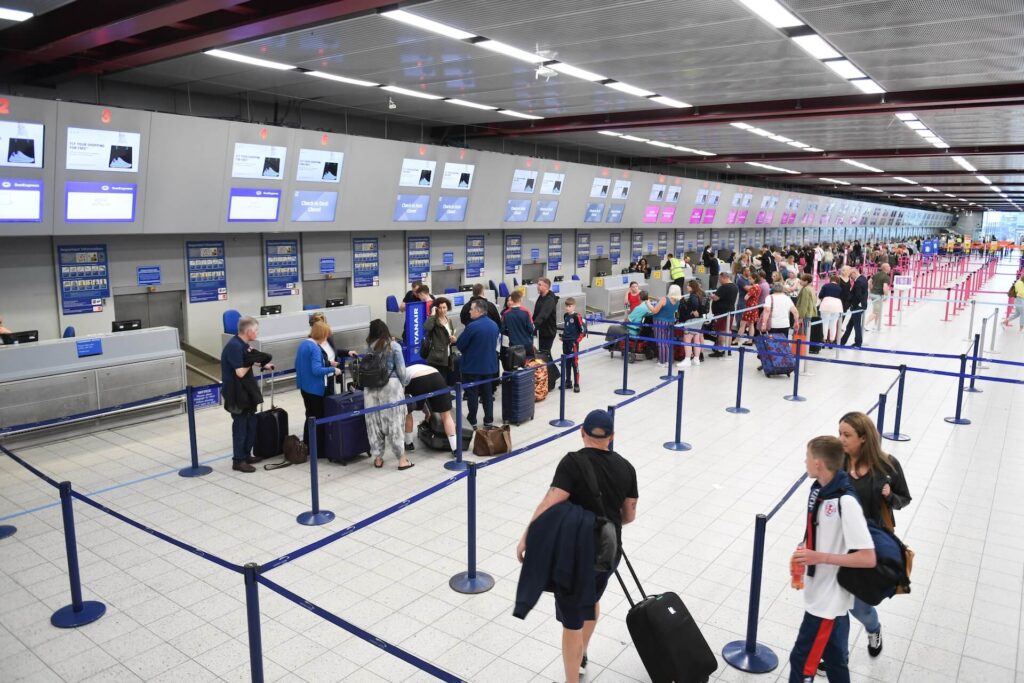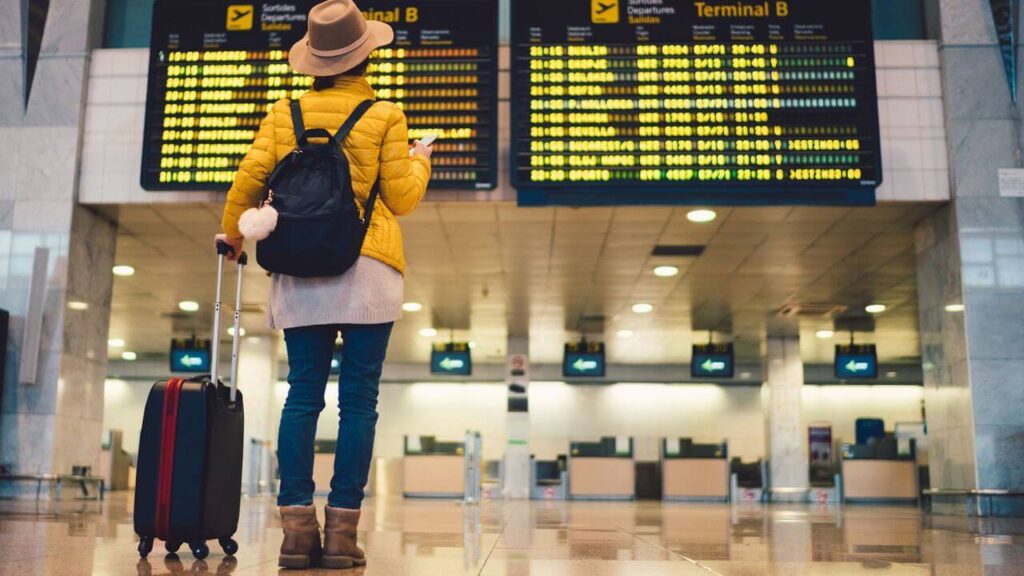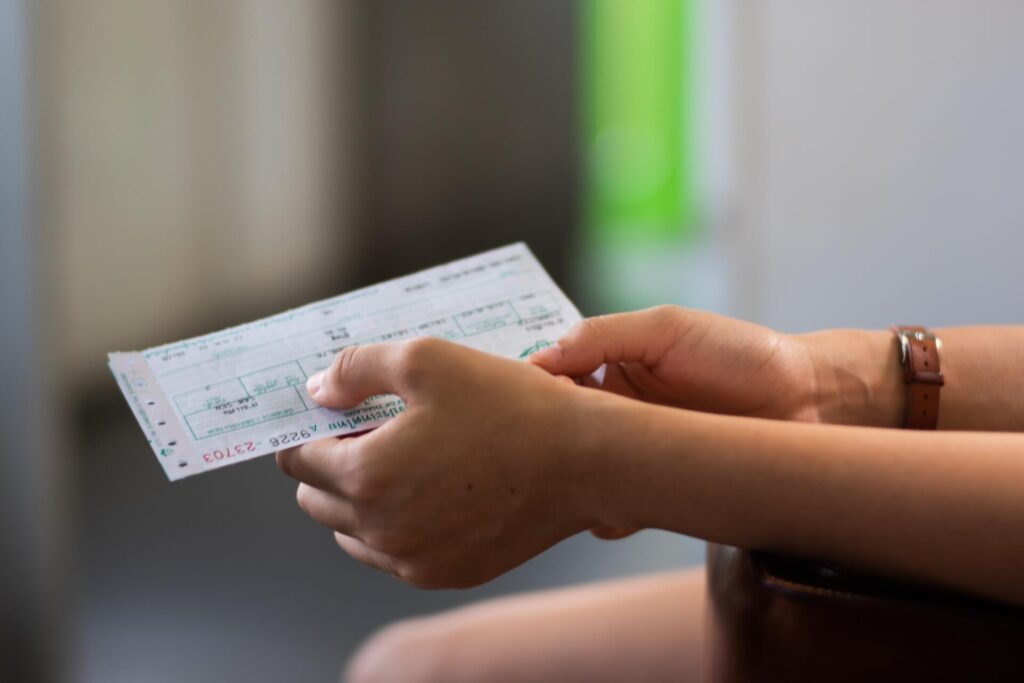Making a travel purchase involves an element of trust. Travelers invest a substantial amount upfront and receive the experience only upon arrival, hoping for the holiday they envisioned. This vulnerability makes the travel industry a prime target for travel scams and other fraudulent activities associated with embarking on a trip.
Related article: Unveiling 5 Travel Hacks On How To Book Cheap Flights
Related article: How to Claim Tax Refund In USA For Tourist
According to the Association of British Travel Agents, ABTA, scammers consistently prey on unsuspecting holidaymakers and travelers, deceiving them and causing financial losses amounting to millions of pounds each year.
“People are not just facing significant financial losses; their holidays are also being spoiled, as they often can’t afford an alternative.”
As household finances tighten and travel expenses rise, individuals are more determined than ever to seek cost-effective options. Scammers exploit this vulnerability. Simultaneously, there’s a growing inclination for some to attempt defrauding travel agents, holiday companies, and airlines.
What signs should you be vigilant about? Here are the critical questions to ask and their answers.

Is there a typical pattern of repeated travel fraud?
Certainly, especially when targeted at potential travelers. A perpetrator poses as a genuine travel enterprise, typically engaging with customers online, convincing them to provide money or make a bank transfer, essentially achieving the same end and the same scam is targeted at different people.
Subsequently, the fraudster disappears. Frequently, the victim only discovers on the day of travel that they’ve been defrauded of substantial amounts.
Travel Scam Schemes
The preferred medium for scammers seeking unsuspecting victims is presenting irresistibly cheap airfare. A case in point involves an individual whose identity remains confidential: “I arranged a flight through a familiar travel agent, someone I had used previously, so there was a level of trust.
“Late last year, he unexpectedly contacted me, inquiring if I was in need of flights. Intrigued, I booked a holiday to Singapore and the Philippines for September this year. “He provided a significant reduction in price for premium economy seats with Singapore Airlines. The total cost was £2,200, and he claimed to have personally covered £100 of the expense. I perceived it as a generous gesture from a friend.”
“My deepest fears were realized when the promised e-tickets failed to materialize even after I transferred the money to three different accounts as per his instructions on December 21, 2022. He assured me that the e-tickets would be dispatched by 9 pm that same evening.”
“Upon contacting Singapore Airlines, it became clear that there were no reservations made under our names. I promptly contacted my bank, Santander, which successfully recovered half of our funds. Unfortunately, the remaining amount had been transferred to an overseas account, posing challenges for retrieval.
Upon realizing the scam, I scrutinized the address provided by the fraudster, only to discover it belonged to a nursing home in Birmingham, not a legitimate travel agency.”

How can one avoid falling victim to such common travel scams?
If a deal appears overly favorable, it’s probably not genuine. While online agents may claim to have the best fares, prices for specific flights generally fall within a narrow range. Utilizing comparison websites like kiwi.com can provide a reasonable estimate of standard fares for a particular destination on specific dates.
If an agent offers prices significantly below the norm, exercise caution. Opting for local travel agents when purchasing holiday travel packages significantly reduces the risk of encountering fraudulent transactions, ensuring a genuine and trouble-free experience.”
Are there any other instances of airline travel scams?
Certainly. A relatively recent scheme involves fraudsters intercepting passengers’ grievances on X (formerly known as Twitter).
Certain passengers, annoyed by issues such as lost luggage and delayed refunds, have been using the official @British_Airways account to tweet about their problems. Scammers have set up an unofficial fraudulent account, “@CareBritish,” and responded to travelers’ tweets.
They request contact information and then fabricate an implausible narrative, asserting that passengers with missing luggage must pay for its delivery to them, despite no legitimate airline making such demands for misrouted baggage.
The scammers stipulate that payment must be made through a bank transfer. Despite urging the use of a reputable foreign exchange company for the transaction, it essentially equates to handing over cash to an unfamiliar party.
If the distressed passenger complies, it’s unsurprising that the luggage doesn’t materialize. Instead, the perpetrators escalate their scheme, citing additional issues and urging the victim to transfer more money.
Like most fraudulent activities, there are unmistakable indicators that something is amiss. In a particular case reviewed by Fuse Chronicles, a British Airways passenger residing in Mexico, whose luggage failed to show up at New York JFK, was informed that their bag had mysteriously been transported from a different NYC airport, La Guardia, to Dallas-Fort Worth.
An individual identifying as “Martin from BA” conveyed on Twitter that the missing luggage could be retrieved, but only if the passenger transferred 22,458 Kenyan shillings (£150) to an individual residing in Nakuru, Kenya.
This is an unusual inquiry coming from a UK airline regarding luggage purportedly in the US and linked to a Mexican passenger. It’s highly irregular for an airline to request a traveler to disclose personal information on social media.
While airlines may encourage dissatisfied passengers to communicate via direct message (DM), it should only be done through an X (Twitter) account with a blue tick, indicating that it is an authenticated social media account affiliated with a reputable organization.

I was requested to make a payment via bank transfer under the pretext that ‘the card machine was malfunctioning
‘This should certainly raise significant concerns, akin to handing cash to an unfamiliar individual. To add complexity, legitimate travel companies often opt for bank transfers to minimize transaction costs (ironically, also to prevent fraud).
Exercise heightened caution if the designated bank account is in an unlikely location or has an unusual name. Any payment directed to a bank outside the UK, or the intended destination country should immediately raise suspicions.
If there’s a solicitation to make a payment to an unrelated individual or into multiple accounts, it could be additional evidence of fraudulent activity.
What is the next frequent travel scam after flight fraud?
The next prevalent is villa fraud, which stands out as the most frequently encountered global travel scam.
As the peak holiday months draw near each summer, I am invariably troubled by the recurring narrative from numerous individuals: “We reserved a villa online, transferred the funds via bank transfer, only to arrive and discover that someone else had been scammed into staying there.”
In the typical scenario, substantial sums, often amounting to several thousand pounds, are sent to the perpetrator, coupled with the expenses incurred for airfares. Additionally, there’s the frequently exorbitant cost of securing alternative accommodation on short notice. This ordeal is particularly devastating and distressing, especially considering the involvement of children.
Exercising due diligence is imperative to ensure that one is dealing with a reputable company or villa owner.

What is the modus operandi of the common scam?
A website is established featuring numerous attractive properties, coupled with remarkably low rates and extensive availability. The site appears professionally crafted and typically provides an address (commonly in Spain) along with a contact number.
Once you’re enticed, the next step is to prompt you to “make a payment today via bank transfer” – essentially equivalent to sending cash – with the enticing offer of a special discount.
How can you discern the authenticity of a website?
Examine the photos by conducting an online search for the villa pictures. This search might lead you to an entirely different yet legitimate site, possibly situated in a different location and bearing a different villa name.
A group of scammers discovered by Fuse Chronicles recognized that savvy customers were catching on to their tactics. In response, they feigned innocence, attributing their actions to multiple owners using various names. They also fabricated a story, asserting that the availability displayed on the fraudulent site, but not on the legitimate one, was due to the owners’ exclusive decision to engage solely with them.
Thoroughly read through the website. Many fraudulent websites are constructed by copying and pasting content from authentic travel companies. If something seems peculiar, try your hand at copying and pasting – an unusual phrase might redirect you to a legitimate holiday company.
In one instance we investigated, the website CycladesRentals.com featured a phrase related to health that appeared conspicuously out of place; it turned out to have been pilfered from a genuine operator specializing in wellness holidays.
Furthermore, numerous fraudulent websites lack a contact number but might display an address. By conducting an online search for this address, you frequently uncover the authentic company associated with the location the scammers purport to utilize.
Retrieve a contact number for that legitimate company, make a call, and observe the outcome. In the instance of the deceitful website named CycladesRentals.com, we personally investigated and confirmed that the address provided led to the premises of an excellent Polish restaurant.

Are there any other warning signs?
Certainly. Investigate the history of the company, as well as the website. A reputable company, like “Calder’s Choice Canaries Cottages,” whether highly regarded or just average, should have a discernible online presence. Conduct an online search using the company name along with the term “reviews.”
It’s possible that you might receive an immediate alert about potentially fraudulent activities. However, if there are no reviews available, and the company asserts to have operated for a decade, that’s decidedly suspicious.
Utilize resources like who.is to determine the registration date of the website. If it was registered in the past few months, exercise extreme caution.
What if they appear authentic after contacting them?
To ensure you’re not engaging with a fraudulent party, insist on a landline number rather than a mobile one. Verify that the dialing code aligns with the claimed location and make a call to the property owner.
You might inquire, for instance: “Before I finalize the booking, could you provide additional details about the area? How far is the beach, what’s the quality of the Wi-Fi, and how is the mobile phone reception?” If the response leaves you unconvinced, delve deeper: request the name of the nearest restaurant, then obtain its contact number and dial it for verification.

The use of time-bound offers for Travel Scams
Scammers consistently employ tactics to rush you into making swift payments, asserting that the property will be leased to someone else unless you commit immediately. They might also assert a 10 or 20 percent discount for prompt payment.
You should be able to discern their urgency, and a practical way to assess their reaction is to propose communication via postal mail. A legitimate property owner is likely to accommodate this and agree to receive your deposit as physical cash through postal services.
While this approach may sound somewhat outdated, it can provide safeguards that online transactions might lack. I’ve personally called a property owner in Greece and subsequently sent the deposit in cash (via registered mail, naturally) to a physical address in the village where the property was situated. This method can potentially offer a more secure transaction compared to transferring money to a distant bank account.
An Airbnb host suggested that we bypass the payment rules for mutual benefit. Is this fraudulent?
Most likely, yes. On Airbnb, if any purported “owner” urges you to communicate directly and make payment through a bank transfer instead of using the official Airbnb payment platform, there’s a high likelihood that you’re dealing with a scammer.
They typically pose as hosts and utilize the platform’s chat feature to establish communication outside Airbnb’s official channels. They might claim this is to avoid fees or cite a special coupon or other misleading reasons. They employ various tactics, such as posting photos of a room with an email address written on the wall. Unfortunately, some individuals fall for these schemes.

Can the travel industry fall victim to fraud?
Certainly, and fraud has been a persistent issue for many years, primarily revolving around air travel. Numerous individuals, who would never consider themselves as criminals, routinely engage in defrauding airlines by exploiting pricing anomalies.
As an illustration, a one-way British Airways flight from London to New York typically costs four times more than a return trip. The potential savings amount to several hundred pounds, leading passengers to often purchase round-trip tickets with no intention of utilizing the inbound portion.
In theory, British Airways could seek payment for the price difference, but to my knowledge, this is a scenario that rarely occurs. However, in instances where travel agents employ such tactics on a large scale, they might face penalties.
Regarding unequivocal criminal activities, the common scam entails purchasing a flight ticket shortly before departure using a stolen or cloned credit card. By the time the criminal act is identified, the passenger has already completed the journey.
However, instances of fraudulent transactions using another person’s cards are not unheard of, particularly when conducted through travel agents.
Ashley Quint, the director of TravelTime World in Berkhamsted, notes, “If I were to pinpoint the current major challenge for travel agents, I would highlight fraud.”
What type of vacation scams are directed at travel agents?
Fraudsters frequently attempt to persuade an agent to secure a booking on their behalf. Airlines readily accept reservations from trusted travel agents without questioning their legitimacy.
According to Abta, a prevalent form of fraud is ‘card not present’ fraud, wherein criminals make telephone or online bookings using a stolen card. These bookings often involve last-minute, high-value airline tickets, as the criminal aims to have departed before any chargeback can occur.
Mr. Quint explains, “In the case of a fraudulent transaction, if someone provides us with a stolen or cloned card, and the card owner initiates a ‘chargeback,’ it then becomes our responsibility.”
Astute travel agents remain vigilant for various warning signs. An individual attempting to make payment with a card that doesn’t match the passenger’s name raises immediate concerns, particularly if it’s for a very impromptu trip, especially in business or first class.
When someone from beyond the company’s usual service area contacts and insists solely on phone interactions, an agent may request payment through bank transfer.
Despite these precautions, some fraudulent activities manage to slip through. One tactic involves purchasing a flexible flight ticket for a journey several months in the future. The scammer then contacts the airline directly to reschedule the booking to an earlier date, claiming the agent was too occupied to make the change. The fraudster is likely to travel before the deception is detected.

Does fraudulent activity against agents extend beyond purchasing flights?
Certainly. A decade or two ago, the primary focus of fraud was on air tickets to Africa. However, Mr. Quint notes that fraud is becoming more prevalent and diversifying in terms of both destinations and types of holidays.
There was even an instance where a couple tried to fraudulently book their honeymoon through his company.
“The credit card transaction proceeded without issues – it aligned with their passports, and everything appeared in order.” About a week later, I received a call from the actual card owner, stating, ‘I haven’t made any transactions with you.’
“We had to involve the fraud squad. Eventually, we believe they apprehended the culprits.
“Fortunately, the tour operator hadn’t finalized the flight ticket, and there was a good rapport with the hotel, so there was no financial loss. Otherwise, the responsibility would fall on us.
“It’s navigable for individuals with substantial industry expertise, as an intuition develops when something doesn’t seem right. However, for someone relatively new to the field, falling victim to such schemes is quite possible.”
If someone has fraudulently used my credit card details to purchase a flight, what steps should I take?
The largest budget airline in the UK, easyJet, provides online guidance for individuals whose cards have been used without authorization.
The airline advises: “If you’ve been charged by easyJet, and you (or someone you’ve authorized to use your card) did not make a booking with us, you may be a victim of fraud. In such cases, contact your bank immediately. Provide them with all the relevant details, and ensure they cancel your card. Scrutinize your account for any other unauthorized transactions and report the incident to the police.”
To recover the funds, the victim is instructed to reach out to the easyJet Customer Service Team.
“We will investigate the booking, furnish you with as much information as possible, and determine whether we can refund or cancel the flight. If we are unable to refund the costs directly to your account, you can initiate a ‘chargeback’ claim.”
This involves a voluntary agreement on the part of your card issuer—such as Visa, Mastercard, or American Express—to reverse a debit, credit, or charge card purchase for customers who have not received the goods or services they were charged for.
“We will investigate the booking, furnish you with as much information as possible, and determine whether we can refund or cancel the flight. If we are unable to refund the costs directly to your account, you can initiate a ‘chargeback’ claim.”
This involves a voluntary agreement on the part of your card issuer—such as Visa, Mastercard, or American Express—to reverse a debit, credit, or charge card purchase for customers who have not received the goods or services they were charged for.

Why can’t the authorities locate the wrongdoers and take action against them?
Many perpetrators leave a digital footprint, and banks may possess some information about their identity. However, due to the relatively modest sums involved, travel fraud cases are frequently overlooked from a law enforcement perspective.
Conclusion
Individuals are enjoined to take preemptive steps to avoid being defrauded by unscrupulous people perpetrating tourist scams. This could be as simple as requesting for a monthly bank statement to run an audit on your account. Always ask questions and try digging deeper before giving out personal information.
It is worth noting that victims of travel scams never get to recover all the money stolen from them, so being careful might be the best course of action.
We do all the heavy lifting on your behalf bringing you our regular newsletter, guiding you through the latest travel insights, exclusive tips, and captivating itineraries. Subscribe now and let the wanderlust-inspired exploration begin!











One Response